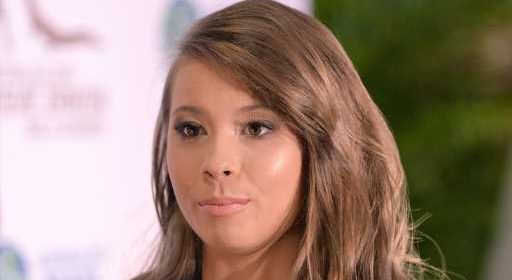Bindi Irwin Opens Up About Finally Getting Care for Her Endometriosis

After experiencing excruciating pain from the time she was a teenager, Bindi Irwin underwent surgery in the United States to address her endometriosis.
“I battled for a long time wondering if I should share this journey with you in such a public space. It came down to the responsibility I feel to share my story for other women who need help,” Irwin, a conservationist and daughter of the late Steve Irwin, wrote in a caption on Instagram along with a post-surgery snapshot. “For [10 years] I’ve struggled with insurmountable fatigue, pain and nausea. Trying to remain a positive person and hide the pain has been a very long road.”
As SheKnows has previously reported, “endometriosis is when tissue that is similar to the lining of the uterus grows outside the uterus, which ends up causing inflammation, pelvic pain and potentially infertility…. According to the Mayo Clinic, endometriosis most commonly involves your ovaries, fallopian tubes and the tissue lining your pelvis, but, in rare circumstances, can spread beyond pelvic organs.”
It’s often misdiagnosed (with some studies showing nearly 75 percent of patients experiencing their symptoms incorrectly named as mental health or other physical issues) and given the pervasive nature of medical gaslighting and the normalization of pain in vulva-owners (particularly around periods), it’s often extremely challenging for people to access care or relief. Irwin shares she is one of those cases.
“These last ten years have included many tests, doctors visits, scans, etc. A doctor told me it was simply something you deal with as a woman & I gave up entirely, trying to function through the pain. I didn’t find answers until a friend helped set me on a path of regaining my life,” Irwin says. “I decided to undergo surgery for endometriosis. Going in for surgery was scary but I knew I couldn’t live like I was. Every part of my life was getting torn apart because of the pain. To cut a long story short, they found 37 lesions, some very deep & difficult to remove, & a chocolate cyst.”
Irwin went on to say that finally getting this care and to have her pain believed and understood in a healthcare setting has meant so much to her: “Validation for years of pain is indescribable. My family & friends who have been on this journey with me for 10+ years — THANK YOU, for encouraging me to find answers when I thought I’d never climb out. Thank you to the doctors and nurses who believed my pain. I’m on the road to recovery & the gratitude I feel is overwhelming.”
She also offered a helpful reminder to folks out there on how they can treat their loved ones living with chronic and invisible illnesses: show some grace, respect their privacy and the things you can’t possibly know about their health. And, though it may seem obvious, mind your business re: someone’s reproductive healthcare decisions (including if they’re planning to have more kids.)
“To those questioning the cancelled plans, unanswered messages & absence — I had been pouring every ounce of the energy I had left into our daughter and family,” Irwin says. “Things may look fine on the outside looking in through the window of someone’s life, however, that is not always the case. Please be gentle & pause before asking me (or any woman) when we’ll be having more children. After all that my body has gone through, I feel tremendously grateful that we have our gorgeous daughter. She feels like our family’s miracle.”
Before you go, check out the mental health apps we love for extra TLC for our brains:

Source: Read Full Article
